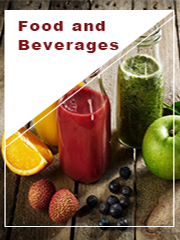TOP CATEGORY: Chemicals & Materials | Life Sciences | Banking & Finance | ICT Media

Download Report PDF Instantly
Report overview
Organic Moringa refers to the cultivation and production of Moringa oleifera—a nutrient-rich plant—grown without synthetic pesticides, fertilizers, or genetically modified organisms (GMOs). Known as the “Miracle Tree,” Moringa is valued for its nutritional and medicinal properties. Organic Moringa products align with sustainable agricultural practices, emphasizing biodiversity, environmental conservation, and consumer health benefits.
The global Organic Moringa market is projected to grow from USD 7,211.80 million in 2023 to USD 14,537.00 million by 2032, representing a compound annual growth rate (CAGR) of 8.10% during the forecast period.
In North America, the market was valued at USD 2,149.19 million in 2023, with a CAGR of 6.94% from 2024 through 2032. These growth trends are attributed to increasing awareness about health and wellness, the rising demand for organic products, and the plant’s widespread application in food, cosmetics, and pharmaceuticals.
Drivers
Growing Health Awareness: Consumers are increasingly turning to natural and organic products for better health, driving the demand for Organic Moringa.
Versatile Applications: Moringa’s extensive use in food, beverages, cosmetics, and pharmaceuticals supports market expansion.
Sustainability Focus: Organic farming aligns with global sustainability goals, enhancing consumer trust and market growth.
Nutritional Benefits: Moringa’s high nutrient content, including vitamins, minerals, and antioxidants, makes it a popular choice in health supplements.
Restraints
High Production Costs: Organic farming methods and certification processes contribute to higher product costs.
Limited Awareness: In some regions, awareness of Organic Moringa’s benefits remains low, limiting market penetration.
Supply Chain Issues: The lack of efficient supply chains in developing countries hampers global distribution.
Opportunities
Emerging Markets: Increasing health consciousness in Asia-Pacific and Latin America presents untapped opportunities.
Innovative Products: Development of new product formulations, such as fortified foods and skincare products, can drive growth.
E-commerce Growth: Online platforms facilitate market entry for smaller producers, expanding the consumer base.
Challenges
Stringent Regulations: Adhering to organic certifications and labeling standards can be challenging for manufacturers.
Competition from Substitutes: Availability of alternative organic supplements may impact demand.
Climate Dependency: Weather conditions and natural disasters can disrupt cultivation and supply.
North America
North America accounts for a significant share of the Organic Moringa market, driven by high consumer awareness and demand for health supplements. The region’s market was valued at USD 2,149.19 million in 2023, with steady growth expected due to robust e-commerce channels and the popularity of plant-based diets.
Europe
Europe demonstrates strong demand for Organic Moringa, particularly in countries like Germany, the UK, and France. The European market benefits from stringent organic certifications and a well-established natural product sector.
Asia-Pacific
Asia-Pacific is the fastest-growing region, owing to Moringa’s traditional usage in countries like India and growing export opportunities. Rising disposable income and health awareness are key growth factors.
South America
In South America, countries like Brazil and Argentina are emerging markets for Organic Moringa. Increasing agricultural innovation and export potential boost the region’s contribution to the global market.
Middle East and Africa
The Middle East and Africa serve as significant producers of Organic Moringa, with countries like Nigeria leading cultivation. Growing local consumption and export opportunities are fueling market growth.
Key players in the Organic Moringa market include:
Green Era Foods & Nutraceutics
Growello Private Limited
MotherTree Nutra
Aayuritz Phytonutrients
K V Natural Ingredients
Ancient Greenfields
TAIYO GmbH
Darsh Biotech Private Limited
Organic Spirulina
Herbal Hills
The Himalaya Drug Company
DRP Herbal
Angel Starch and Food
HNCO Organics
Organic Dehydrated Foods
Grenera Nutrients
Moringa Agro
Dominate Industries
Connolis
Hypermarkets/Supermarkets: These outlets dominate due to wide accessibility and variety.
Convenience Stores: Local availability boosts their popularity.
Specialty Stores: Focused on organic and health products, driving targeted sales.
Online Retail: The fastest-growing channel, offering convenience and global reach.
Others: Includes direct-to-consumer and wholesale distribution.
Powder: Popular for its versatility in food, beverages, and supplements.
Capsule: Preferred for convenience and precise dosage.
The Organic Moringa market is competitive, with players focusing on product innovation, sustainability, and market expansion. Companies like Green Era Foods & Nutraceutics and Grenera Nutrients lead the market with diversified product offerings.
North America: USA, Canada, Mexico
Europe: Germany, UK, France, Russia, Italy, Rest of Europe
Asia-Pacific: China, Japan, South Korea, India, Southeast Asia, Rest of Asia-Pacific
South America: Brazil, Argentina, Columbia, Rest of South America
Middle East and Africa: Saudi Arabia, UAE, Egypt, Nigeria, South Africa, Rest of MEA
1 What is the current market size of the Organic Moringa market?
As of 2023, the global Organic Moringa market is valued at USD 7,211.80 million, with projections to reach USD 14,537.00 million by 2032.
2 Which are the key companies operating in the Organic Moringa market?
Prominent players include Green Era Foods & Nutraceutics, Growello Private Limited, and The Himalaya Drug Company.
3 What are the key growth drivers in the Organic Moringa market?
The market is driven by growing health awareness, sustainability initiatives, and Moringa’s versatile applications in food, cosmetics, and pharmaceuticals.
4 Which regions dominate the Organic Moringa market?
North America and Asia-Pacific are key regions, with North America leading in consumption and Asia-Pacific as a major producer.
5 What are the emerging trends in the Organic Moringa market?
Trends include innovative product formulations, increased online retailing, and expanding markets in Asia-Pacific and Latin America.
Key Benefits of This Market Research:
Key Reasons to Buy this Report:
Customization of the Report
In case of any queries or customization requirements, please connect with our sales team, who will ensure that your requirements are met.
Chapter Outline